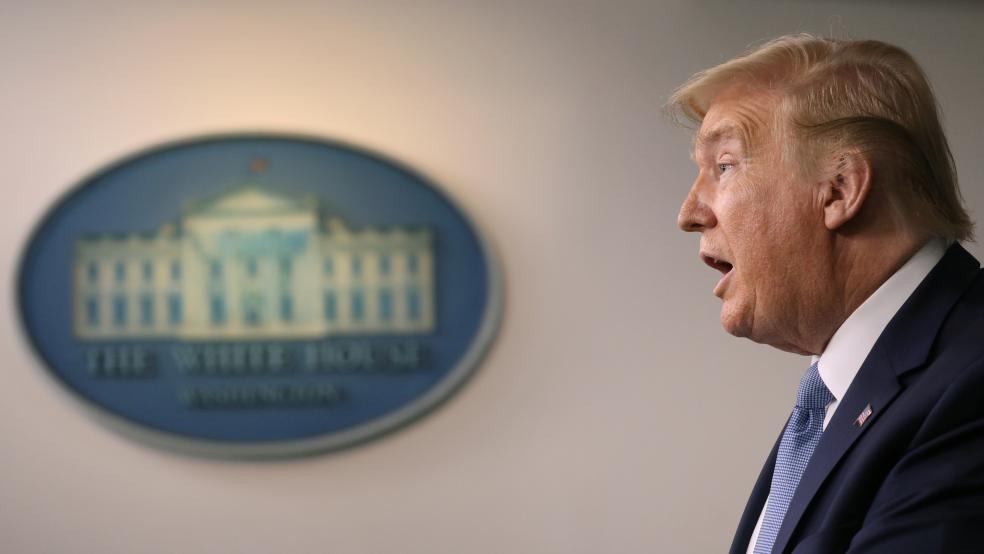President Trump warned Monday that the novel coronavirus outbreak could last until July, August or later and acknowledged that the economy “may be” tumbling into a recession as a result of the massive disruption to Americans’ daily lives.
Stocks suffered one of their worst daily losses on record, with the S&P 500 index plunging 12% and the Dow Jones Industrial Average down 13%, despite the Federal Reserve’s emergency rate cut on Sunday, which dropped the central bank’s key interest rate to essentially zero. The Fed also launched a massive $700 billion quantitative easing program.
As the coronavirus turmoil spread, Trump struck a very different tone Monday than he has in recent days — "It's bad, it's bad," he said — and the White House is reportedly aiming to spend at least $800 billion over the coming weeks as it seeks to support the economy and help businesses forced to shut down and workers forced to stay home because of the pandemic.
Politico’s Nancy Cook and Ben White report:
"Among the administration’s targets this week: providing relief in the form of tax deferments, loans or even direct payments to airlines, the hospitality industry and small-to-medium businesses crippled by plunging demand. Officials know they need to release the contours of their plan quickly — potentially as soon as Tuesday — as turmoil accelerates in financial markets, said a person familiar with the White House’s plans. …
“Half of the $800 billion in aid, under the latest White House estimates, would come from aid to workers and small businesses, tax deferrals and other moves already underway including deferring student-loan interest, buying oil and additional provisions of a relief bill already moving through Congress. The other half would come from a payroll-tax holiday through the end of the year — a move that would likely cost much more than $400 billion.”
Congress, meanwhile, continues to work on a multi-billion-dollar coronavirus relief package, the second in what's likely to be a series of bills to address the economic and public health effects of the pandemic.
The Senate canceled a scheduled recess this week so it could pass the emergency coronavirus relief bill that House Speaker Nancy Pelosi and Treasury Secretary Steven Mnuchin scrambled to negotiate last week. The House passed the package, which includes free virus testing and paid sick leave for employees of small businesses, early Saturday morning in a 363-40 vote. But the legislation has not yet been sent to the Senate as leadership reportedly works on some technical fixes and seeks to address some other concerns that could have stalled passage.
“House aides in both parties said there had been ‘some changes’ in the coronavirus bill regarding the Medicaid reimbursement and small business tax credit sections, although those issues have been resolved,” Politico’s John Bresnahan and Marianne Levine reported.
Another concern: Rep. Louie Gohmert, a Texas Republican who voted against the relief bill last week, had threatened to block the process the House would use to pass the revised legislation.
The revised package is reportedly close to being ready — but it’s prospects in the Senate are still not completely clear. Sen. Tom Cotton (R-Ark.) told "Fox & Friends" on Monday that the House bill will not pass the Senate as written, given GOP concerns about its paid sick leave provisions.
"It doesn't go far enough and it doesn't go fast enough," Cotton said, according to Politico. "Most of the measures in this bill are something that the senators will support, I believe. ... But we worry that the bill setting up a new and complicated system relying on businesses giving paid sick leave and then getting a refundable tax credit that won't move quickly enough and could put pressure on those businesses to lay workers off."





